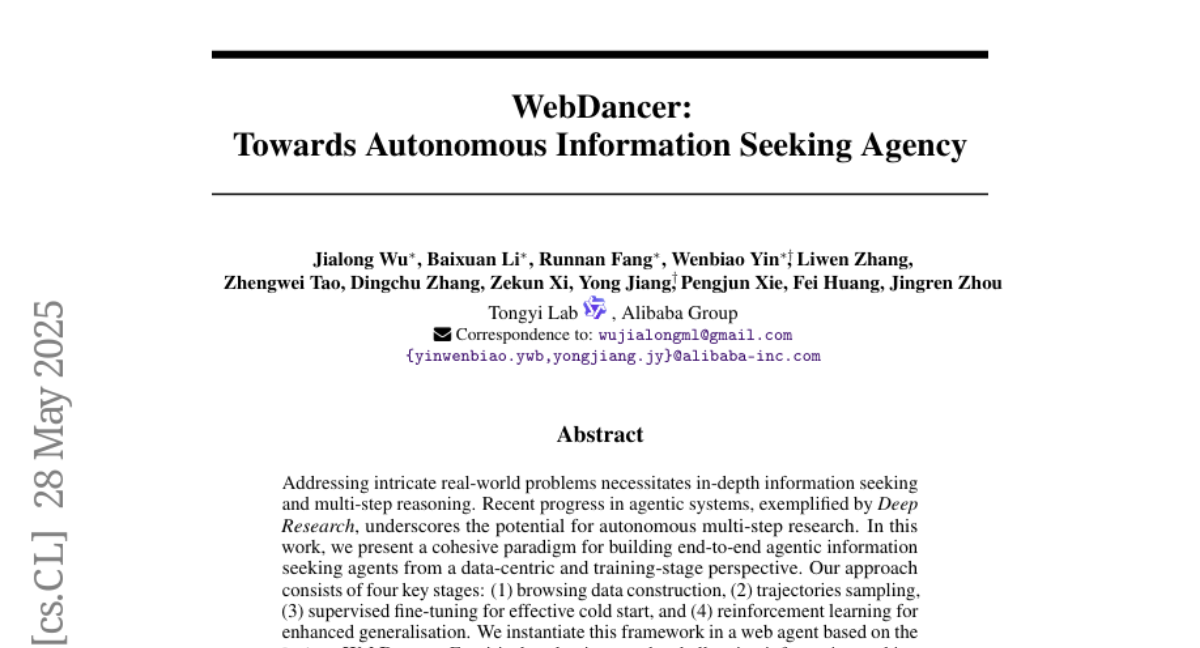WebDancer: Towards Autonomous Information Seeking Agency
Jialong Wu, Baixuan Li, Runnan Fang, Wenbiao Yin, Liwen Zhang, Zhengwei Tao, Dingchu Zhang, Zekun Xi, Yong Jiang, Pengjun Xie, Fei Huang, Jingren Zhou
2025-05-29

Summary
This paper talks about WebDancer, a new AI system designed to act like an independent web researcher that can find, analyze, and reason through information online by itself, using a step-by-step process similar to how humans do research.
What's the problem?
The problem is that most AI agents struggle with complex information-seeking tasks on the web because they usually rely on shallow, single-step searches, can't handle changing websites, and have trouble planning out long, multi-step strategies to solve real-world problems.
What's the solution?
To solve this, the researchers built a framework with four main stages: they first created advanced training data by simulating human-like browsing and question-asking, then sampled example search paths, used supervised fine-tuning to give the agent a strong start, and finally applied reinforcement learning so the agent could improve by trial and error. This approach allowed WebDancer to learn how to perform deep, multi-step reasoning and adapt to new web environments.
Why it matters?
This is important because it means AI agents can now handle much more complicated online tasks, making them useful for things like academic research, business intelligence, and any situation where finding and understanding information from across the web is needed.
Abstract
The paper proposes a framework for building end-to-end agentic information seeking agents through a combination of data construction, trajectory sampling, supervised fine-tuning, and reinforcement learning, showcasing its effectiveness on information seeking benchmarks.